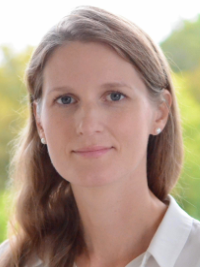
Madelène Isaksson
hosted at Lund University,
Sweden
My name is Madelène Isaksson and I have been hosted by Lund University for my PhD studies. The aim of my project was to develop an integrated downstream process for the purification of monoclonal antibodies. The process should furthermore be fully automated and be able to adapt to process variations, such as the antibody concentration in the process feed. During my studies, I have learned several new skills. I have become an experienced user of chromatography equipment, and I have also worked with modelling of chromatographic separations. Moreover, I have learned to program in Python and have become a user of Orbit, a software developed at Lund University (Lund, Sweden) for controlling e.g. chromatography equipment. An important part of PhD studies is writing, and I have gained experience on how to write manuscripts for scientific journals. What I enjoyed most about my project was the work I did in collaboration with other PhD students and company partners. Being part of a larger project, it was possible to produce more interesting results, since the project scope could be extended according to the capabilities of each collaborator. I also appreciated having the opportunity to attend conferences and discuss research with internationally known researchers in the field of integrated continuous downstream processing. I believe that my biggest contribution to the scientific community is the operation of an integrated continuous downstream process for acid-sensitive monoclonal antibodies on pilot scale. For future Early-Stage Researchers, I would like to give the following advice. It is important to get an overview of the research area fast. A good start is to ask fellow PhD students to recommend interesting work to read. Also, attending suitable conferences early-on, is a great opportunity to get to know the research field. To get the skills needed, you can attend courses or do mini projects on your own. The main purpose of a mini project should be learning, not to produce publishable results. I would also recommend future Early-Stage Researchers to find people to collaborate with, if possible. Also, don’t be afraid to deviate from the initial scope of the project, it might happen that you get an interesting idea that both you and your supervisors wants to investigate further. After finishing my PhD studies, I intend to look for a position within industry, preferably within process development within the focus of my PhD project, but I would also be open to working in other industries.


